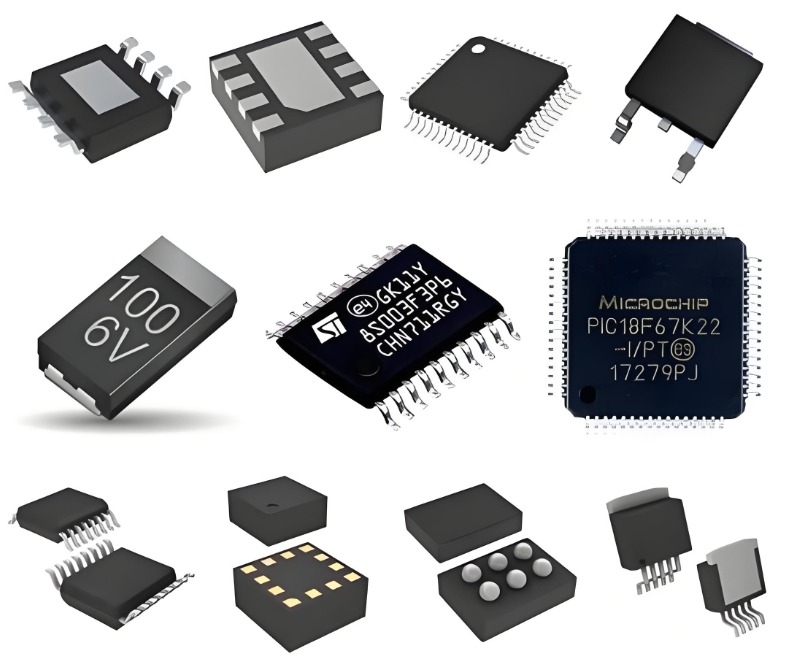**AD1981AJST: A Comprehensive Technical Overview of Intel's High-Definition Audio Codec**
The AD1981AJST is a pivotal component in the history of personal computing audio, representing a significant leap from the basic AC'97 standard to genuine high-definition audio. Developed by Analog Devices in collaboration with Intel as part of the Intel High Definition Audio (Intel HD Audio) architecture, this codec was a cornerstone for premium desktop and laptop audio solutions in the mid-2000s. This article provides a detailed technical examination of its architecture, key features, and lasting impact.
**Architectural Foundation: The Intel HD Audio Framework**
Unlike its predecessor, the AC'97 codec, the AD1981AJST is built upon the **Intel High Definition Audio specification**. This new architecture brought fundamental improvements, most notably a move away from fixed-stream audio to a much more flexible **packet-based digital interface**. This shift allows for multiple, independent audio streams to be processed and routed simultaneously—for instance, playing a game while receiving a voice-over-IP call—without any signal degradation or mixing in the digital domain.
The codec itself is a mixed-signal semiconductor device, integrating both analog and digital circuits on a single chip. Its core consists of high-quality digital-to-analog converters (DACs) and analog-to-digital converters (ADCs), supported by a digital signal processor (DSP) for routing and basic audio processing.
**Key Technical Features and Capabilities**
The AD1981AJST was lauded for its robust set of features that delivered a superior audio experience:
* **High-Fidelity Audio Playback:** It supports **20-bit stereo DACs with a 96 kHz sampling rate** and a dynamic range exceeding 100 dB. This capability ensured support for DVD-Audio quality playback, delivering crisp, detailed, and immersive sound far beyond the capabilities of earlier integrated audio solutions.
* **Advanced Multi-Streaming:** A hallmark of the Intel HD Audio specification, the codec could handle multiple audio streams concurrently. This enabled sophisticated applications like **automatic voice conferencing and acoustic echo cancellation (AEC)**, making it ideal for business and communication PCs.
* **Comprehensive I/O Connectivity:** The codec was designed for extensive connectivity. It typically supported **retaskable audio jacks**, allowing the software driver to dynamically reassign the function of a port (e.g., from line-out to microphone-in) based on the plugged-in device. It also provided interfaces for CD audio, PCI/PCI Express bus connection, and numerous analog and digital (S/PDIF) input/output channels.

* **Enhanced Motherboard Integration:** The AD1981AJST was designed for efficiency and cost-effectiveness in motherboard design. It required a single +3.3V power supply and included extensive power management features, making it suitable for both desktop and mobile platforms.
**Applications and Legacy**
The AD1981AJST found its way into a vast array of **high-performance motherboards** from all major manufacturers, particularly those featuring Intel's core logic chipsets. It became the de facto audio solution for premium desktop PCs, gaming systems, and high-end laptops, defining the audio standard for its era.
Its legacy is profound. The Intel HD Audio architecture it helped pioneer remains the standard for PC audio today. The concepts of multi-streaming, retaskable jacks, and high-fidelity DAC/ADC integration are all foundational elements in modern audio codecs. The AD1981AJST successfully bridged the gap between the legacy of basic PC audio and the modern expectation of high-definition, feature-rich sound.
ICGOOODFIND: The AD1981AJST is far more than a vintage component; it is a **seminal audio codec that successfully implemented the Intel HD Audio specification**, setting a new benchmark for integrated PC audio quality, flexibility, and functionality that continues to influence design today.
**Keywords:**
Intel HD Audio
Audio Codec
High-Fidelity Playback
Multi-Streaming
Analog-to-Digital Converter (ADC)
